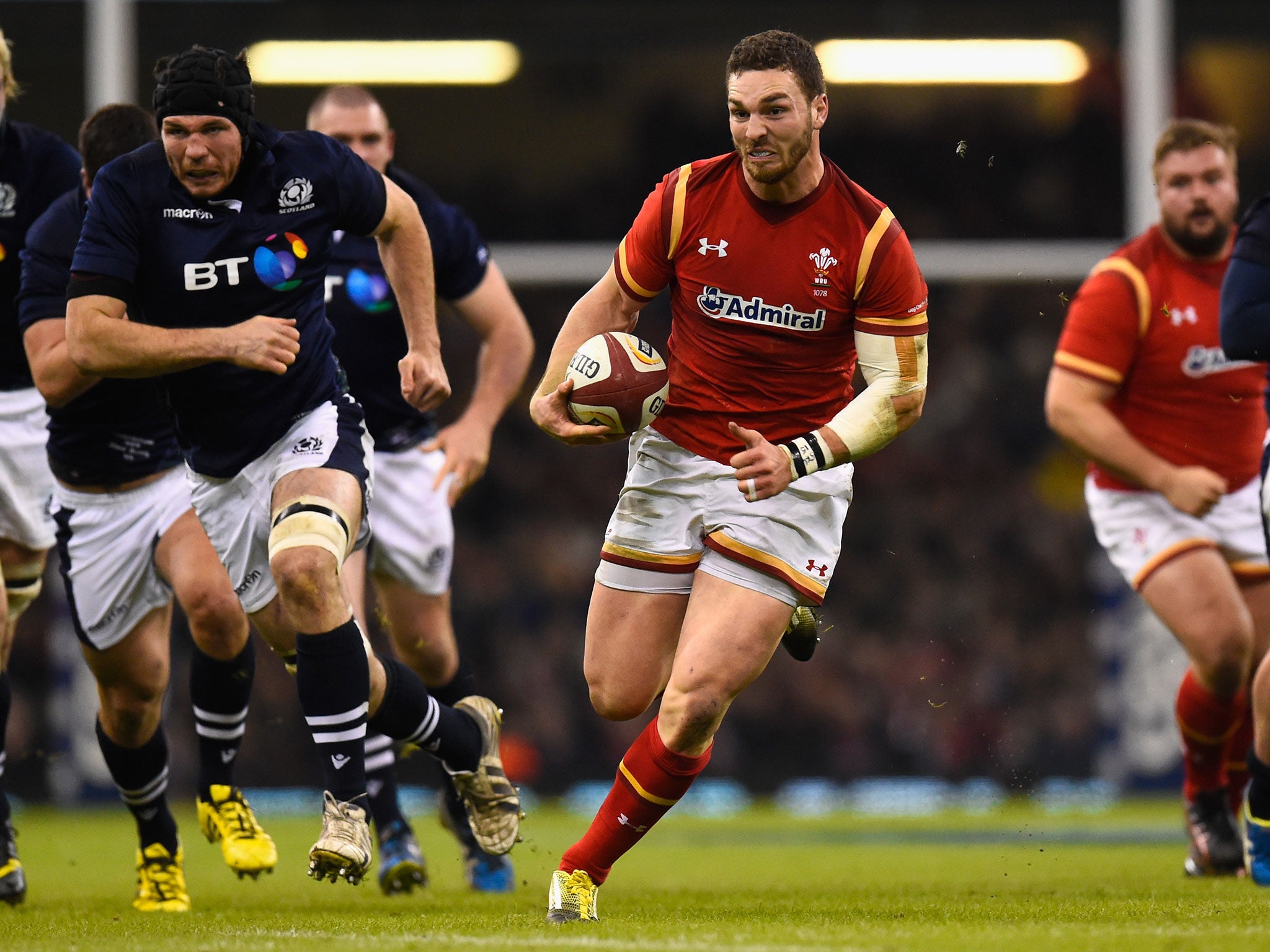Six Nations: Wales still a work in progress but George North finds form to revive Championship hopes
Wales followed up their draw with Ireland with victory over Scotand

Your support helps us to tell the story
From reproductive rights to climate change to Big Tech, The Independent is on the ground when the story is developing. Whether it's investigating the financials of Elon Musk's pro-Trump PAC or producing our latest documentary, 'The A Word', which shines a light on the American women fighting for reproductive rights, we know how important it is to parse out the facts from the messaging.
At such a critical moment in US history, we need reporters on the ground. Your donation allows us to keep sending journalists to speak to both sides of the story.
The Independent is trusted by Americans across the entire political spectrum. And unlike many other quality news outlets, we choose not to lock Americans out of our reporting and analysis with paywalls. We believe quality journalism should be available to everyone, paid for by those who can afford it.
Your support makes all the difference.Wales cannot emulate their predecessors who achieved Grand Slams in the years following the 2007 and 2011 World Cups but they can certainly be party poopers. They will be lying in wait for unbeaten France in the third round of the Six Nations Championship, knowing they have home advantage and are slowly building momentum.
Yet there remains a vulnerability about them which as perceptive a coach as France’s Guy Novès will seek to exploit, most notably at the scrum. Warren Gatland, the Wales coach, went out of his way to praise the efforts of his front-row forwards who, between them, boast only 41 caps – few enough in these days of ubiquitous replacements – but he knows there is plenty of work to do.
“If we beat France, we could be playing England [on 12 March at Twickenham] for the championship,” Gatland said. “But we take one step at a time, it’s still early days for France. Someone new [Novès] comes in, it takes a few games to get things under their belt.” And while France have been dragging themselves up from an unhappy World Cup, their scrum remains a formidable unit and they will be heartened not so much from their form shown in the Six Nations but the fact that, albeit from home fixtures, they stand two out of two.
Wales squeezed a penalty from the very first scrum of Saturday’s 27-23 win over Scotland at the Principality Stadium but could not do so again. They scored their third try behind a steady scrum but, in between, Scotland themselves were able to slow ball with a counter-shove and induce errors from Gareth Davies, the Wales scrum-half. It took all the strength of Taulupe Faletau to turn scrum possession into something useable before Jamie Roberts scored the try that sent Wales into the lead.
Still, it is a coach’s ideal, to win by scoring decent tries and yet have plenty of work to do. If only Scotland, who have not beaten Wales since 2007, could claim as much. They create opportunities but cannot take them: a try went begging for Stuart Hogg for the second week running; they find it hard to create sustained pressure in the opposition 22; and the try scored by Duncan Taylor in the final two minutes came too late to concern the home side.
They also have fitness concerns. Hogg hurt his back in a sliding catch, Sean Maitland has a scan today on a hamstring injury, Tommy Seymour and Richie Gray sprained ankles while Blair Cowan sustained a concussion. Nor, of course, does fortune favour those who need it: there were claims of offside against Gareth Davies prior to the first Wales try which went unheeded both by the referee and the video official.
The revival of George North continues, too. For a man of 6ft 4in, he has seemed relatively peripheral in recent internationals but here he made a penetrating run early in the second half, which led to the second of Dan Biggar’s penalties, and later scored the try, his 24th in internationals, that effectively decided the result.
“We saw something special from George and you need that in tight games,” Gatland said. “Sometimes players go through a dry period but everyone knows how devastating he can be as an attacking threat.”
Wales needed such a threat, given that 64 minutes had passed before they overcame Scotland’s tenuous lead, but sensible use of their bench helped overcome the effect of two demanding internationals within seven days.
Sensible decisions too. It has become fashionable to spurn penalty-kicks at goals, as Chris Robshaw remembers all too well from England’s unhappy World Cup pool game against Wales last September. Ireland did so against France on Saturday and Sam Warburton here with his side trailing by three points: but Warburton had sniffed the wind and reckoned a five-metre scrum would earn the greater reward. Faletau’s recovery work ensured that it did.
Join our commenting forum
Join thought-provoking conversations, follow other Independent readers and see their replies
Comments